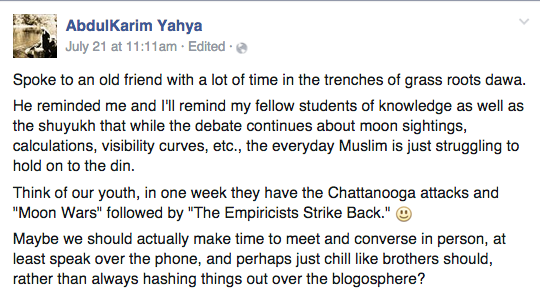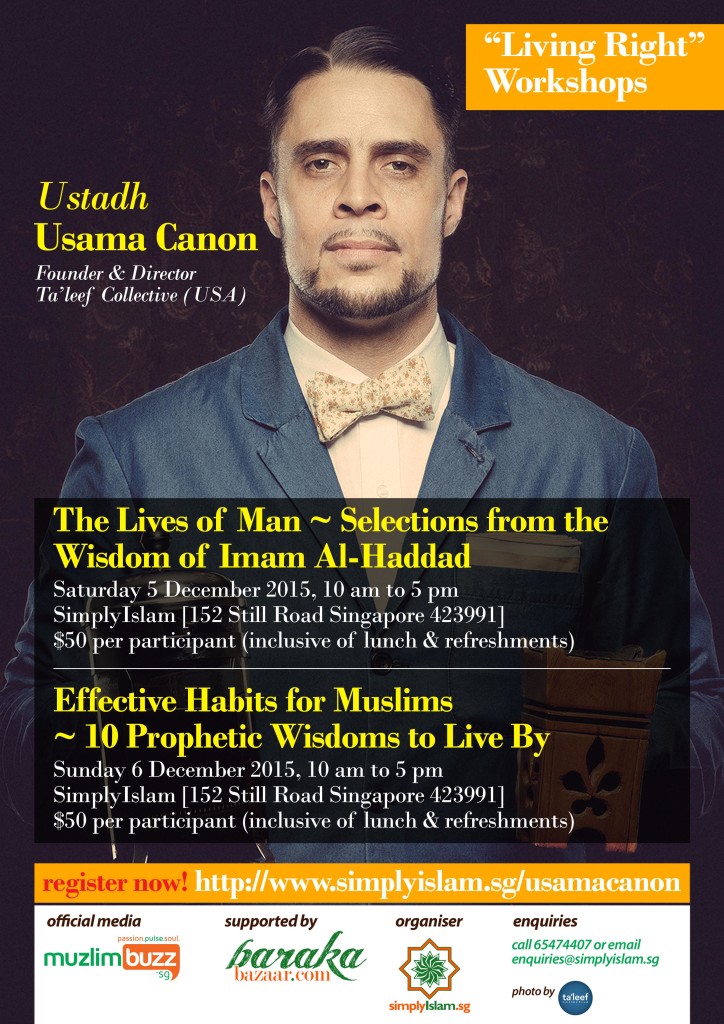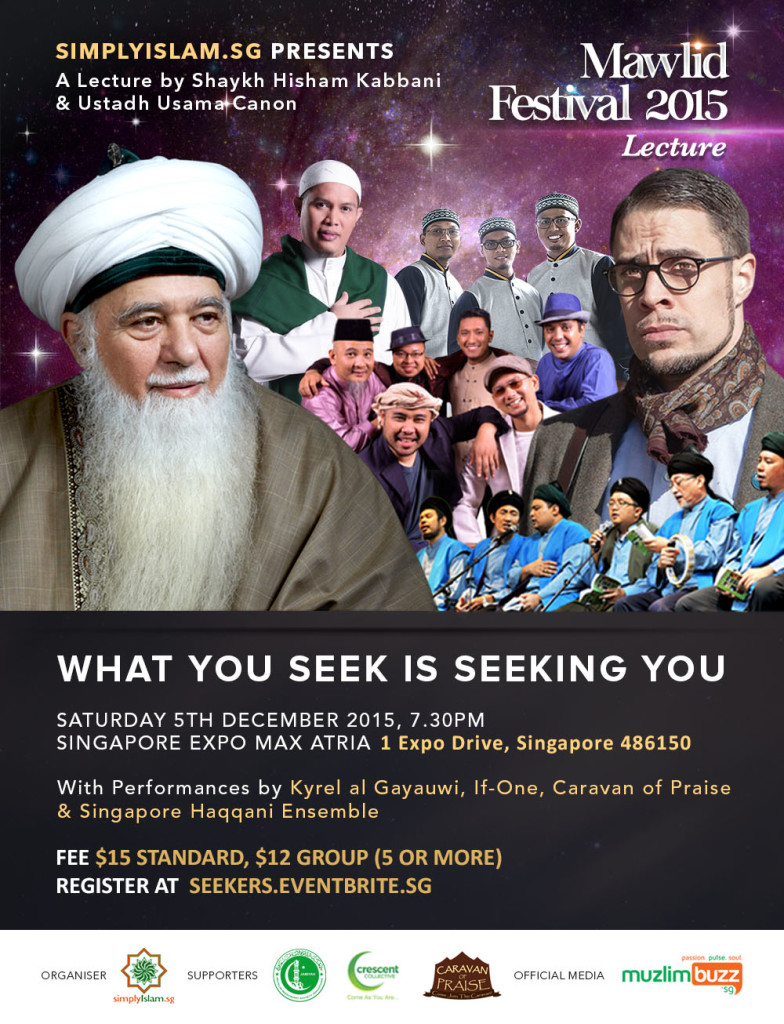Po and friends return, making us laugh and go “Woahhhh!” at Shifu’s and Master Oogway’s wisdom. Don’t worry, no spoilers ahead!
![]()
I’ll be frank. I’ve been a fan of the Kung Fu Panda movies since the first one came out in 2008. Po is clumsy, unabashedly adorable, and all-round lovable. The humour is side-splitting, the action scenes thrilling and the wisdom of the Kung Fu Masters mind-blowing.
Here’s some of my favourite quotes from Master Oogway from the first movie:
![I admit, I'm not alone in my love for the Kung Fu Panda movies. SimplyIslam made this poster shortly after the first movie!]()
I admit, I’m not alone in my love for the Kung Fu Panda movies. SimplyIslam made this poster shortly after the first movie!
![1]() Click here for source of Master Oogway’s picture.
Click here for source of Master Oogway’s picture.
![2]()
Click here for source of Master Oogway’s picture.
8 years and 3 movies later, the Kung Fu Panda movies are still as enjoyable to watch and continues to drop some deep wisdom bombs!
Wisdom #1
In one scene, Shifu is surrounded by walls of scrolls as he tries to find something about Kai (the bad guy in the 3rd movie). In his frustration and urgency, he says, “There’s so much wisdom in here, I can’t find anything!”. -mic drop-
SimplyIslam recently started a campaign called #FindCredibleTeachers. In the past few years, we’ve found that the easy access to Islamic books and Shaykh Google makes some people think that you can learn Islam without a teacher. You increasingly hear of someone quoting a short YouTube video online of an unknown bearded man speaking Arabic to justify why this or that thing is haram.
Muzlimbuzz wrote on this phenomena too:
1. Tips for the Newly Religious
2. 4 Refutations to Anti-Hadith Arguments
Our religion’s tradition of seeking knowledge is noble and indispensable. Scholars are revered for their years of study, reflection, spiritual training and wisdom. Their advice is so needed today in the chaos of self-made ‘teachers’ and books-and-internet-only Muslims. Had the Qur’an been enough to teach the people about our religion, then Allah wouldn’t have sent the beautiful Prophet Muhammad sallallahu alaihi wasallam as His Messenger and Example.
This is not to say that our religion is inaccessible, but that scholars have their positions because they have earned it. And the rest of us should behave as students and leave legal rulings and judgments to those who have the capacity to do so. And we most definitely must stay away from committing takfir on others and assigning people to Hellfire like we own it. We must connect ourselves to a credible teacher who can clarify our doubts, not add to it. Teachers who can increase us in our obedience and love to Allah and Prophet Muhammad sallallahu alaihi wasallam and better our relationships with our parents and neighbours, not increase us in our hatred of others who hold different beliefs and understanding.
May Allah guide us to credible teachers who will teach us His religion the way He intended it, in the spirit of love, mercy and tolerance that Prophet Muhammad sallallahu alaihi wasallam taught his Companions. Ameen!
Wisdom #2
In the previous 2 movies, Po comes to a realisation about something confusing that Master Oogway or Shifu says much, much later. This movie is no different. (No worries, still no spoilers for KF3!)
In Kung Fu Panda 1, Po, after being told he is the Dragon Warrior, opens the Dragon Scroll which is supposed to hold ‘limitless power’ only to find that the scroll was a blank, shiny surface. Po, who never believed he was the Dragon Warrior in the first place, thinks the whole thing is a joke and goes fuming to his father’s noodle shop. At this point, Po’s father, Mr Ping decides to tell Po the secret ingredient to his noodles: nothing.
Po: “Huh?”
Father: “You heard me. Nothing! There is no secret ingredient!”
Po: “Wait, wait, it’s just plain old Noodle Soup? You don’t add some kind of special sauce or something?”
Father: “Don’t have to, to make something special, you just have to believe it’s special.”
There are several interpretations to the emptiness of the blank scroll:
- The Dragon Warrior does not need ‘limitless power’ from an external source as he can find it in himself.
- Or as his father says, Po does not need validation from the scroll, he only needs to believe he is the Dragon Warrior.
- The scroll is empty because in reality, there is no Self. (Woaaahhh)
![]()
Towards the end of the movie, Po says something along the lines of how he can’t understand what Master Oogway or Shifu says sometimes. I know that feeling so well. In a particularly distressing moment in my life, I had asked for some clarity from my Shaykh. I wanted a ‘Yes’ or a ‘No’. Instead, I got a “If your heart is open to it, go ahead.” WHAT.
It’s not that our Sufi Masters want to be purposely enigmatic, mysterious or downright confusing. It’s because their minds and souls are clear and pure and they see things from a different perspective from us normal folk who still struggle with our nafs. Often, I begin to understand what they meant a long time later as more things in life unfolds. (There are still some pending confusion.)
This reminded me of a particular Sufi story. A great saint had said to the people, “The God you worship is under my feet!”. Enraged and convinced that he had committed a sacrilegious offence, the people and the ruler ordered that he be killed. Hundreds of years passed and a new ruler dreamt of this saint who informed him of what happened. When he awoke, he rushed to the spot that the saint had uttered those words and ordered his soldiers to dig it. They found two cauldrons full of gold. The saint meant that the people only claimed to worship God but were devoted to and worshipped wealth (the gold in the cauldron) instead.
It’s also reflective of the exchanges between Sayyidina Musa and Sayyidina Khidr in Surah al-Kahf. Sayyidina Khidr, who the Qur’an described as “on whom We have bestowed Mercy from Ourselves and whom We had taught knowledge from Our own presence”, ilm-ladunni, Divine Knowledge (Surah al-Kahf 18:65) insists, “You will not be able to have patience with me!” (Surah al-Kahf 18:67) when Sayyidina Musa asked that he be taught from Sayyidina Khidr.
We then read of instances when Sayyidina Khidr does things that baffles Sayyidina Musa, such as wrecking a boat, killing a young man and then repairing a wall in a town without asking for compensation. (Feel free to refer to Surah al-Kahf for the verses.) All these instances would baffle any of us as it goes against the grain of normalcy and logic. And yet, Sayyidina Khidr explained his actions later on and they turned out to be full of wisdom.
Life is full of such instances and we trust that everything that happens has Divine Wisdom and does not escape Allah’s Knowledge. And that’s pretty darn comforting even in the most confusing of times.
Wisdom #3
Another favourite scene of mine was this exchange between Po and Shifu:
Shifu: Mastering chi requires mastery of self. Oogway sat alone in a cave for thirty years, asking one question: who am I? Who am I? I’m lucky if I get five minutes before you interrupt…
Po: Aw, so now I have to sit alone in a cave for thirty years?
Shifu: Eventually. After you master teaching.
Po: Teaching? There’s no way I’m ever gonna be like you!
Shifu: I’m not trying to turn you into me; I’m trying to turn you into you.
![]()
This was an eerily similar statement to that which was said by the late Shaykh Nazim an-Naqshbandi, “I do not change anyone, I do not add to anyone. I only pass on Divine Knowledge. I give from you to you, from within yourself. I make connections.”
It was also said that Sayyidina Ali said, “O man, the cure to your ailment is within you and you do not know; and your pain is also from you but you do not see. Do you suppose that you are only a small body, while the universe is within you?”
It also goes back to the old-age journey of self-discovery. Po comes to peace with and finally answers the “Who am I?” question in the movie (lucky panda!) but for many of us, we try on many masks and shed different layers until we are finally comfortable in our own skin. We study tasawwuf and learn about characteristics of the nafs and struggle every day to be a better version of ourselves, and not pretend to be someone else or what we are not.
Jalaluddin Rumi also says, “Everyone has been made for some particular work, and the desire for that work has been put in every heart.”
May we be true to ourselves, trust the process and #FindCredibleTeachers in our journey back to God.
___
Ameera Begum
Ameera is the Editor of Muzlimbuzz.sg, a chronic reader and a news junkie.

















 Click
Click 













 Ustaz Zahid (the one on the left) aka the muse behind #DiaryTokKadi is one of those young and dynamic Ustaz who can really connect with …. everyone! But more importantly, the segment of the community that is actually active on social media especially Instagram which are the youth. He humanises the role of an Ustaz but manages to infuse beneficial reminders and thought-provoking content in his postings. He also shares his ongoing classes and speaking engagements so you don’t miss them!
Ustaz Zahid (the one on the left) aka the muse behind #DiaryTokKadi is one of those young and dynamic Ustaz who can really connect with …. everyone! But more importantly, the segment of the community that is actually active on social media especially Instagram which are the youth. He humanises the role of an Ustaz but manages to infuse beneficial reminders and thought-provoking content in his postings. He also shares his ongoing classes and speaking engagements so you don’t miss them!






 Most of the time you will get higher pricing if you do so. We supply taxi providers to and from the French Airport to the 34.841 municipalities of France.
Most of the time you will get higher pricing if you do so. We supply taxi providers to and from the French Airport to the 34.841 municipalities of France. Letting someone deliver you or pick you up just isn’t at all times attainable and parking your personal automotive on the airport is not an affordable resolution. Then you’ll be able to select for a cheap airport switch by an skilled vacation
Letting someone deliver you or pick you up just isn’t at all times attainable and parking your personal automotive on the airport is not an affordable resolution. Then you’ll be able to select for a cheap airport switch by an skilled vacation